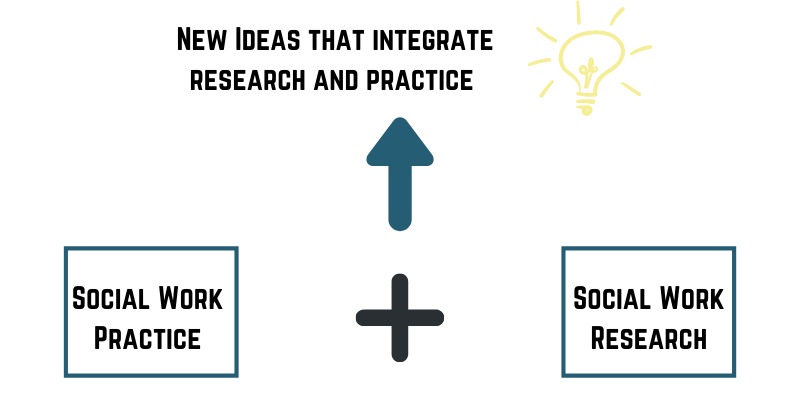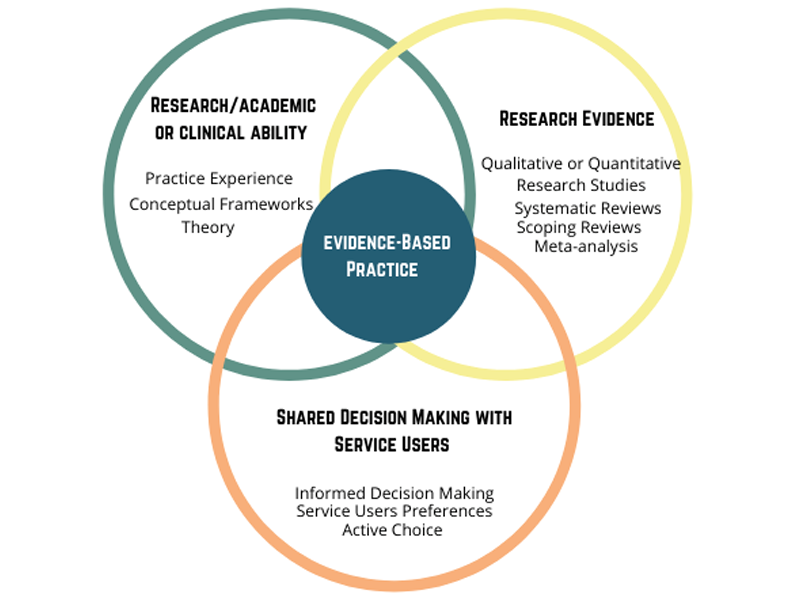Qualities and Characteristics of Research As Daily Practice
In this section the qualities and characteristics informing Research As Daily Practice are presented:
Generative
practitioner-researchers generate the creation of something new and fresh by integrating research and practice.


Local and Daily
Practitioner-researchers embed research within their everyday practices.
Participatory
Practitioner-researchers view themselves as participants in their mutual involvement and joint search for understanding and meaning through dialogue. They value participation over specific material outcomes.


Transdisciplinary
Practitioner-researcher’s aim to integrate knowledge across disciplines and social contexts.
Action-oriented
Practitioner-researchers develop initiatives to reduce barriers in the uptake of research into practice through collaborative and participatory approaches. By encouraging the crossovers between practice and research, more opportunities are created for knowledge to be implemented. This fulfills the original hopes and expectations for why knowledge is desired and encourages the application of research into practice (St. George et al., 2020).

Additional resources on this approach are provided later in this training module (e.g., videos, webinar links, suggested readings).
Evidence-Based Practice
Evidence-based practice involves incorporating current evidence-based research and theory to inform practice, practice experience, practitioner views, and client preferences (Satterfield, 2009). Evidence-based practice involves three main components:
- Research/academic or clinical ability
- Research evidence
- Shared decision-making based on service user preferences
It is important to guide practice based on conceptual frameworks derived from research, theory, and experience. In a social work context, evidence-based practice is made up of four key components:
- What we know from research and theory
- What we and other professionals have learned from clients and practice wisdom, which includes professional values
- What we, as social workers, have learned from personal experience; and
- What clients bring to practice situations

Adapted from Gilgun (2005) and Satterfield (2009)
Benefits of Research-Mindedness
There are a number of benefits associated with becoming research-minded in social work practice.
Research-mindedness can increase social work students’ receptivity to research. The integration of research and practice also can enhance students’ knowledge and critical perspectives.
Educating and training the next generation of social workers must include preparation for team-based research (Gehlert et al., 2017). Part of the social work role involves working with other professionals and contributing to the creation of knowledge that can influence policies, agencies, and programs. These activities are critical to solving complex social problems (Gehlert et al., 2017).
Integrating research in students’ practicum experiences can help agencies to explore and evaluate diverse topics and develop new perspectives to improve services and programs.
Practice research provides opportunities to contribute to social justice when practicum students and their field instructors identify and implement solutions to social problems. Practice research fulfills the social justice aspect of social work by:
- Assisting with interpreting social work theories and translating them into social work practice
- Challenging the status quo in society and contributing to the transformation of society
- Challenging ideas and assumptions that encourage stereotypes or do not contribute to social justice
- Empowering and liberating people who are oppressed (Danso, 2015)
Rapid change has prompted social work education programs to redesign their practicum models (Ayala et al., 2018). The integration of research into social work practice is indispensable as social work strives to address complex challenges by implementing sustainable options. Bringing research activities into field placements provides the opportunity to prepare students with new skills that can advance social justice, inclusion, and a sustainable society. It is imperative to prepare social work students to contribute to untangling complex challenges and addressing social problems in unprecedented circumstances.
Challenges of Research-Mindedness
Along with the benefits of research-mindedness there are also a number of challenges associated with becoming research-minded in social work practice.
Lack of Research Activities in Field Learning Agreements
Often research activities are not included or identified in student practicum learning contracts. We recommend that students integrate research activities into their learning agreements by identifying opportunities to develop research-mindedness in field placements. To learn more about how to incorporate research activities in field learning agreement see this link.
Current social work field education models are designed to prepare most BSW and MSW students for direct practice as social work practitioners. Some literature state that students often share that they feel anxious about research because they feel that they lack the knowledge, experience, and skills to include research in their social work practice (Drolet, 2020). This challenge can be addressed by field educators promoting, enhancing, and supporting research as an essential part of social work practice, to help students feel more comfortable with including research in their practice.
Given that social workers are agents of change in society with the role of addressing social problems through practice-based interventions, theories, or frameworks, field educators can highlight the importance of community development and participatory action research in social work.
Field educators can demonstrate how to integrate the best available evidence in their practice by encouraging students to conduct literature reviews on topics related to the field setting or design a pilot research project and involving practicum students in research activities within the field agency.
The perception that there is a lack of access on research and relevant literature may be perceived as a limitation by some field educators. Barriers may be linked to limited access to software and computer technology, including search engines or data analysis techniques. Practicum students often have access to relevant literature at their university library and can be encouraged to search and share published research with their field instructors and agencies.

